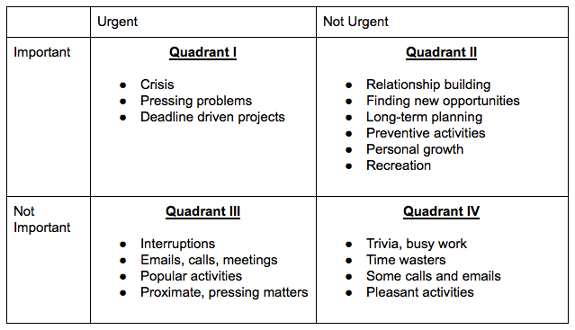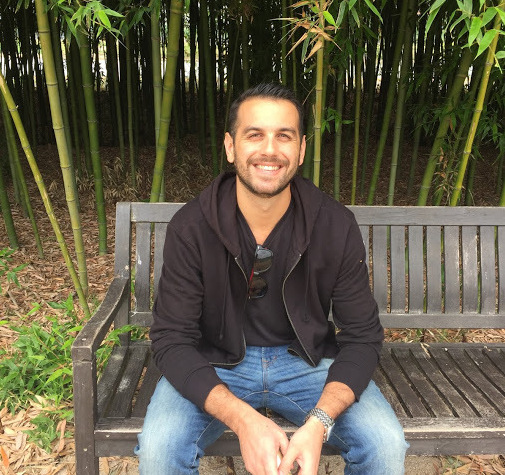“The difference between successful people and really successful people is that really successful people say no to almost everything.” -Warren Buffet
You probably need to say “no” a lot more.
Every time you say yes to something, it means you’re saying “no” to a dozen other opportunities. The world’s most successful and extraordinary people say no to almost everything, waiting to say yes to only the very best opportunities.
These few things will determine their career, legacy, and livelihood.
Warren Buffet, investor extraordinaire and a net worth of over $70 billion dollars, has said that for every hundred opportunities he is given, he might say yes to 1–2 of them. He joked that his investment strategy “borders on lethargy” — he declines so many offers, it might look like he never does anything!
In truth, really successful people say no to most things, because most things won’t get them to where they truly want to be.
Steve Jobs also shared this mentality. Decades ago, he said:
“People think focus means saying yes to the thing you’ve got to focus on. But that’s not what it means at all. It means saying no to the hundred other good ideas that there are. You have to pick carefully. I’m actually as proud of the things we haven’t done as the things I have done. Innovation is saying no to 1,000 things.”
You can do amazing things — but only if you have time to do them.
Focus less on the kinda-cool opportunities, and start focusing more on the truly great ones. Even if you have to wait a while.
Saying Yes To One Thing Means Saying “No” To Many Others — So Choose Wisely
“The most successful people I know are not “busy” — they’re focused.” -Jeff Goins, best-selling author
When you take on one task — a new project, a weekly trivia night with coworkers, a new yoga class — you are also saying “no” to other tasks that could fill up your time.
The trick is to take on tasks you truly want to do.
Life isn’t all business — the times I spent getting a beer with friends or having a 2-hour Skype call with my best friend across the country are invaluable to me. Everyone needs time to just screw around and relax.
But saying yes to one thing means saying no to many others. And if you keep saying yes to the wrong things — the kinda-good opportunities that ultimately aren’t helping you get where you want to go — then soon, you won’t be able to say yes to the truly important things.
Back when I worked in a desk job in corporate America, everyone was always trying to get me to do “more things” — join a committee, develop new programs, mentor new-hires, and always, always go to meetings, meetings, and more damn meetings.
After a long time of saying yes to all these random projects, I realized just how pointless they are were — my goal was to be a writer and work for myself. Going to another optional meeting for improving new-hire orientation simply wasn’t helping me achieve my goal.
So I began saying no to almost everything. No more committees, projects, and a serious “Hell no” to more meetings. I had a new focus — complete my day-job work to the best of my abilities, but all my spare energy would go to my true goal: becoming a writer.
Eventually, I succeeded — I now write full-time from home as my own boss. I’m a published author and have a successful coaching business.
I had to say “no” many times to get here.
But that’s what it takes.
Decrease Your “Busyness” and Increase Your Focus On Important Things
A lot of people would rather have the empty dopamine hit of checking off boxes on their to-do lists instead of actually putting in important work. Why? Being “busy” can feel good in the moment. You feel like you’re getting a lot done.
But a life full of busyness drains your energy, focus, and discipline. It’s so hard to come home and do important work when you’ve spent all day being busy.
Sadly, most people aren’t living a focused life — if they are, they’re focusing on the wrong things: money, fame, jealousy and comparison, or “beating the competition.”
The main culprit for most people’s lack of focus is busyness. It’s so easy to get sucked into doing busy work, and it kills your focus over time. In The 7 Habits of Highly Effective People, Stephen Covey has an interesting illustration for what is “urgent” and what is truly “important”:

James Covey Time Management Matrix
Most people spend most of their time in the bottom left — doing urgent yet not important tasks like email, meetings, putting out fires, and dealing with interruptions.
In other words: busyness. And busyness sucks.
When you focus on busyness, your time is wasted very quickly, and you don’t get a lot done. You feel tired, but not in a good way — you feel tired and also that you still haven’t done much. That sucks!
But when you set boundaries and refuse to tolerate mindless “busyness,”you become far more productive very quickly. You start to find more meaning and focus in your life. You start achieving actual goals, not just checking off empty boxes of your to-do list.
Frankly, a lot of people just want to be busy. They want the badge of honor: all the running around, endless obligations, all their time spoken for. To some people, that’s admirable.
Still, others realize how silly the empty-calorie “busyness” really is. At the end of the day, would you rather be able to brag to people about how “busy” you are, or truly live a life on your terms where you do meaningful work?
Choose to focus on a few important things that waste your days being “busy”.
How Highly Effective and Incredibly Successful People View Time
“How can you achieve your 10 year plan in the next 6 months?” -Peter Thiel, billionaire
World-class performers don’t strive for “balance” — they actually strive for time abundance.
“Balance” implies partial amounts of energy given to everything: 33% to family, 33% to work, 33% to relaxing, and the like.
But think about it. Are you really satisfied with giving your family only 33% of your energy? Or your work? Or your relaxation time?
This is not the path to becoming an extraordinary, world-class version of yourself.
The world’s most successful people give 100% of their time to whatever they are doing.
They are hyper-focused and relentlessly present with what’s directly in front of them: their work duties, their current set at the gym, their family across the table, or their daughter begging to go outside and play. Wherever you are, be there.
The most successful people in the world became so successful because they learned how to master time. They understand “balance” isn’t the goal — abundance is. They can do as much as they want.
They learned the most important truth about time there is: the rules are made up. They don’t apply to you. You can accomplish any goal imaginable in an extremely short length of time.
You just have to know how to use the time you’re given.
“Don’t seek time balance. Seek time abundance.” -Grant Cardone
If You Don’t Control How You Spend Your Time, You Won’t Have Any Left
The great science fiction author Neal Stephenson once commented on how he’s able to keep writing long, prolific novels year after year.
“If I organize my life in such a way that I get lots of long, consecutive, uninterrupted time-chunks, I can write novels,” he said. “But as those chunks get separated and fragmented, my productivity as a novelist drops spectacularly.”
It’s very easy to let time slip away. Give distractions a minute, they’ll take a whole hour. You need to protect your time. If you don’t, you won’t have any left.
Once you cut out all the fluff, distractions, and procrastination, you can accomplish in one week what it would take others years to finish.
4-year colleges are a great example of this.
If you’re like me, you have a 4-year degree. But you probably only ever took less than a dozen classes in your desired field. The rest was fluff, like pre-requisites and “general education” that had nothing to do with your goal.
If you had 3 hours a week in class, for four 16-week semesters, that total comes to 192 hours of learning.
That’s 8 days.
To receive half of a “4-year” degree.
Obviously, there’s more to it than just class; homework, essays, and studying all take time. But for most students, 95% of school is fluff. Remove the forced summer/winter breaks, screwing around, and partying, and you could complete the requirements for a “4-year” degree in a few weeks.
Most people carry this misunderstood “4-year” principle for the rest of their lives.
They hear “15-year mortgage” and assume takes 15 years to pay for a house. They hear retirement is at 65, so they can’t fathom retiring any earlier. They get 2 weeks of vacation a year, so they think it take 5 years to earn that trip to Europe.
Most people don’t see the trap they’re in. They don’t realize they could complete 1000x the results, 100x faster than before.
NaNoWriMo is one of my favorite examples. If you’ve never heard of it, National Novel Writing Month is a challenge to write a 50,000 word novel in 30 days. Every year, thousands of writers finish enormous books in 4 short weeks. Many of these writers have created six and seven-figure incomes from their NaNoWriMo projects.
I can use myself as an example about saving an incredible amount of time. When my wife and I moved to Korea, I knew absolutely no Korean.
But while my coworkers signed up for a 16-week Korean language class, I found a video where I learned to read the Korean alphabet in literally 5 minutes through a pneumonic memory strategy. Months into their Korean class, my coworkers could still hardly read the alphabet. I was reading menus at restaurants and navigating bus terminals for us.
If you remove all the breaks, fluff, preparation, and procrastination, you can accomplish your biggest goals in a few months — or even weeks.
In Conclusion
“Most people have no clue what they are doing with their time but still complain that they don’t have enough.” -Grant Cardone
You can accomplish amazing things — but only if you have time to do them.
Strive for time abundance — be 100% present in whatever you’re doing. You’ll accomplish much more in a far shorter time.
Cut out distractions and fluff. Things usually don’t take as long as most people say. When you focus entirely on the task at time, you can enter flow states and achieve incredible progress far faster than anyone around you.
This takes discipline. It requires you to go against what the crowd tells you.
Ready to Level-Up?
If you’re an entrepreneur and want to achieve your goals 10x faster, check out my free checklist.


